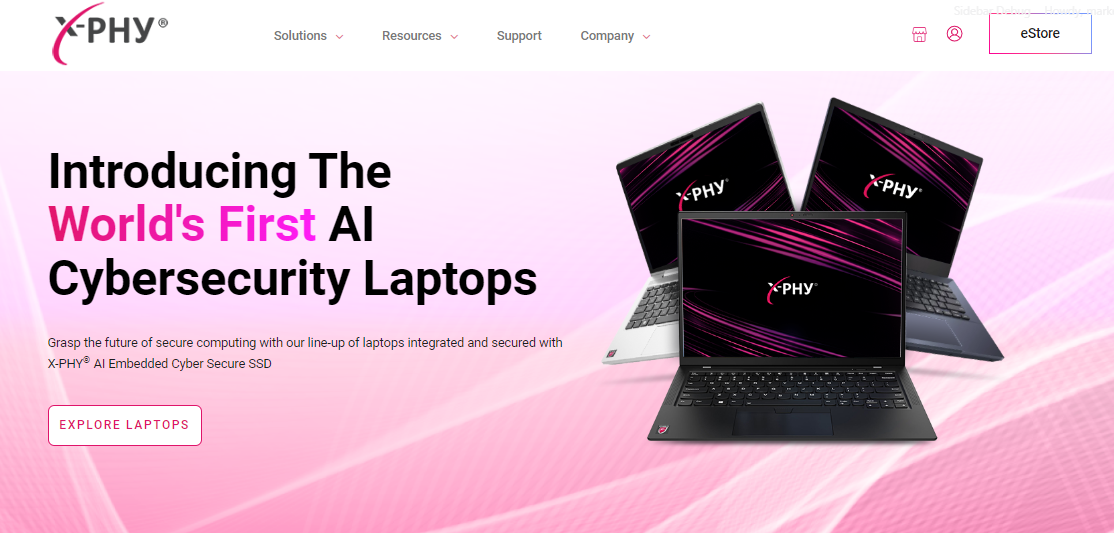Secure laptops For Your Small and Enterprise Business to Secure Cyber attacks

In today's digital age, businesses of all sizes face significant cybersecurity threats. With cyber attacks becoming increasingly sophisticated and prevalent, protecting sensitive data and infrastructure is paramount. Laptops, being ubiquitous tools in modern business operations, are particularly vulnerable to security breaches. Therefore, selecting secure laptops is essential for small and enterprise businesses alike to mitigate the risks associated with cyber threats.
Understanding the Threat Landscape:
Cyber attacks come in various forms, including malware, ransomware, phishing, and insider threats. Each poses unique challenges and requires a multi-layered defense strategy. Secure Laptops, often used both inside and outside the office premises, are susceptible to these threats, making them a prime target for cybercriminals.
Key Considerations for Secure Laptops:
-
Hardware Security Features:
- Trusted Platform Module (TPM): TPM chips provide hardware-based encryption, securing sensitive information such as passwords and encryption keys.
- Biometric Authentication: Laptops equipped with fingerprint scanners or facial recognition technology offer an additional layer of security beyond traditional passwords.
- Hardware-based Security Keys: USB security keys provide two-factor authentication and protect against unauthorized access.
-
Operating System Security:
- Regular Updates: Choosing laptops that support automatic updates ensures that security patches are promptly installed, addressing known vulnerabilities.
- Secure Boot: This feature ensures that only trusted software is loaded during the boot process, preventing malware from infecting the system at startup.
- Application Whitelisting: Restricting the execution of software to approved applications reduces the risk of malware infiltration.
-
Endpoint Security Solutions:
- Antivirus and Antimalware Software: Deploying reputable antivirus and antimalware solutions helps detect and remove malicious software before it can cause harm.
- Endpoint Detection and Response (EDR): EDR solutions provide real-time monitoring and response capabilities, enabling proactive threat detection and containment.
-
Data Encryption:
- Full Disk Encryption (FDE): Encrypting the entire hard drive protects data even if the laptop is lost or stolen, rendering it inaccessible to unauthorized users.
- File-level Encryption: Encrypting sensitive files and folders adds an extra layer of security, ensuring that only authorized users can access confidential information.
-
Remote Management and Security Policies:
- Mobile Device Management (MDM): Implementing MDM solutions allows businesses to remotely enforce security policies, track devices, and perform remote wipes in case of loss or theft.
- Bring Your Own Device (BYOD) Policies: Establishing clear BYOD policies helps mitigate security risks associated with employees using personal laptops for work purposes.
Secure Laptop Brands and Models:
-
Dell Latitude Series:
- Known for their robust security features, Dell Latitude laptops offer options such as Dell Data Protection and Dell ControlVault for enhanced data protection and authentication.
-
HP EliteBook Series:
- HP EliteBook laptops come equipped with HP Sure Start Gen5, which protects the BIOS from malware attacks, along with HP Sure View privacy screens to prevent visual hacking.
-
Lenovo ThinkPad Series:
- Lenovo ThinkPad laptops feature built-in webcam covers for added privacy, along with robust security features like Discrete Trusted Platform Module (dTPM) and self-encrypting drives (SED).
-
Apple MacBook Pro:
- MacBook Pro models boast Apple's T2 Security Chip, which provides hardware-based encryption for data protection, along with features like Secure Enclave for secure boot process.
Conclusion:
In conclusion, securing laptops for small and enterprise businesses is imperative to safeguard against cyber attacks. By considering factors such as hardware security features, operating system security, endpoint security solutions, data encryption, and remote management policies, businesses can mitigate the risks associated with cyber threats. Choosing reputable laptop brands and models with robust security features further enhances defense mechanisms against evolving cyber threats. In today's dynamic threat landscape, investing in secure laptops is not just a choice but a necessity for ensuring the integrity, confidentiality, and availability of critical business data and operations.
- Industry
- Art
- Causes
- Crafts
- Dance
- Drinks
- Film
- Fitness
- Food
- Games
- Gardening
- Health
- Home
- Literature
- Music
- Networking
- Other
- Party
- Religion
- Shopping
- Sports
- Theater
- Wellness
- News


